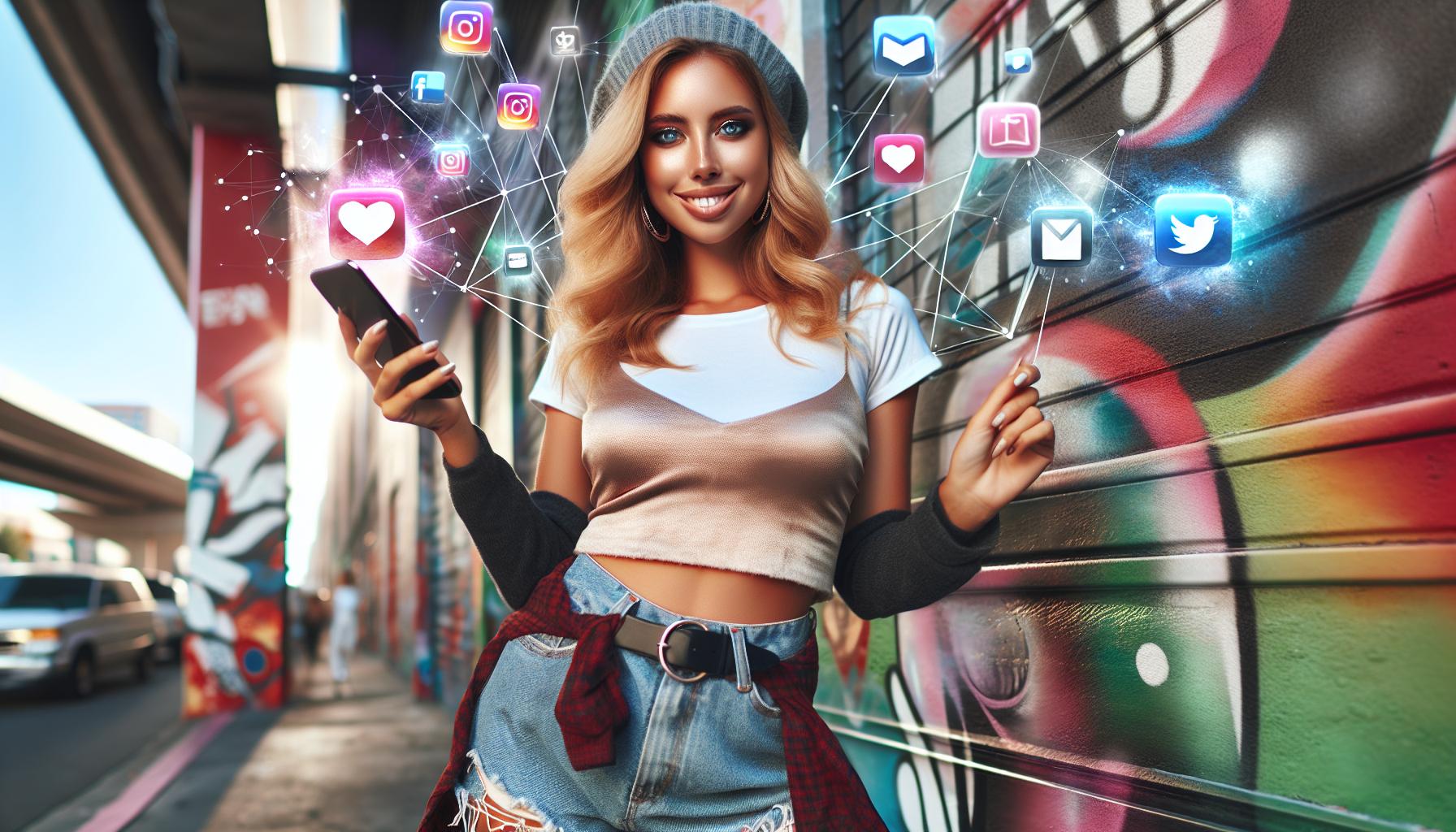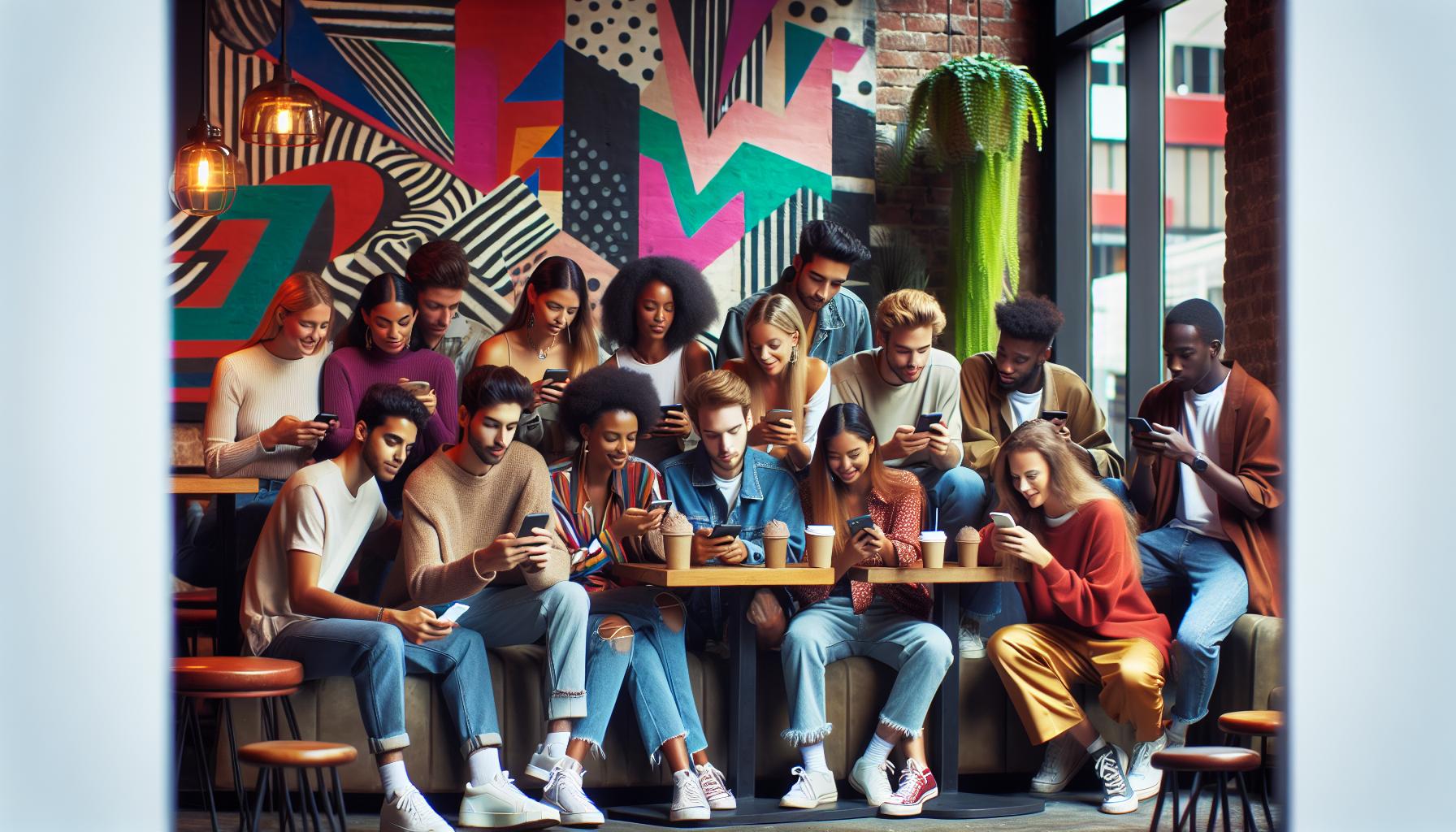In a world where likes and followers reign supreme, social media influencers have become the new rock stars. But what happens when the glitz and glam start to wear off? Beneath the perfectly curated feeds and sponsored posts lies a darker side that’s creeping into society. From unrealistic beauty standards to spreading misinformation, these digital celebrities might not be the role models they claim to be.
While they entertain and inspire millions, the influence they wield can lead to some serious consequences. It’s time to take a closer look at how their impact can distort reality and affect mental health. After all, when the filter fades, what’s left might just be a distorted view of life that’s hard to shake off. Buckle up as we dive into the not-so-glamorous world of social media influencers and their ripple effects on our society.
Social Media Influencers Negative Impact on Society
Social media influencers have emerged as powerful figures in the digital landscape. These individuals leverage platforms like Instagram, TikTok, and YouTube to build vast followings. Audiences often view them as relatable personalities or trendsetters. Particularly, influencers shape consumer behavior and cultural trends through lifestyle content, fashion choices, and personal narratives.
Many influencers cultivate a curated persona that may not reflect real life. This deliberate presentation can lead followers to develop unrealistic expectations about beauty and success. Research indicates a strong correlation between social media use and body image issues among young adults, underscoring the potential harm of peer comparison, especially with visuals created or enhanced using an AI image generator. Additionally, influencers often endorse products without disclosing their sponsorships. Such practices can mislead audiences regarding the authenticity of recommendations.
The reach of influencers extends beyond mere advertising. Content shared by these figures often goes viral, influencing opinions on various topics, such as health, politics, and social issues. However, misinformation spreads quickly in this context. Instances of influencers sharing unverified medical advice or promoting dubious diets highlight the risks associated with unregulated influence.
Influencers play a dual role by inspiring and misguiding their audiences. Despite their potential for positive impact, the unintended consequences on mental health and societal norms warrant scrutiny. Understanding this complex landscape is essential for navigating the influence of social media personalities on modern society.
Understanding The Negative Impact

Social media influencers significantly affect society, with several negative consequences for their followers. These consequences manifest in various ways.
Mental Health Issues
Influencers contribute to mental health struggles among their audiences. Research shows a direct link between social media use and body image concerns in young adults. Followers may feel pressured to conform to unrealistic standards showcased online. Constant exposure to curated personas can lead to feelings of inadequacy. Additionally, influencer culture may foster anxiety and depression through comparison and validation seeking. Participants in studies often report lower self-esteem after viewing such content. Active engagement with these influencers can amplify feelings of loneliness and social isolation. Addressing these issues requires awareness and education regarding the impact of influencer portrayals.
Spread Of Misinformation
Misinformation spread by influencers can have serious repercussions. Followers often trust influencers for advice on health, politics, and lifestyle choices. Unverified medical claims can lead to dangerous consequences for people’s well-being. Instances of promoting dubious diets or unproven treatments illustrate the potential harm. Audiences frequently remain unaware of the influencers’ lack of expertise in these areas, leading to misguided beliefs. Misleading product endorsements without proper disclosures create a false sense of authenticity. Encouraging followers to research and verify claims helps combat the prevalence of misinformation. Addressing these challenges fosters a more informed audience, ultimately reducing harmful consequences.
Societal Changes Driven By Influencers

Social media influencers significantly impact societal behaviors and expectations. Their presence on platforms like Instagram and TikTok shapes how consumers perceive brands and products.
Consumer Behavior Alterations
Influencers alter purchasing decisions through curated content. Followers often trust influencers for recommendations, leading to impulsive buying, particularly in beauty and fashion sectors. A study by the Digital Marketing Institute revealed that 49% of consumers depend on influencer recommendations. Brands recognize this influence, increasingly leveraging influencer partnerships to boost sales. Authenticity in influencer endorsements drives consumer loyalty and engagement. Followers are more likely to purchase products endorsed by relatable influencers. This shift underscores the power influencers hold in today’s marketplace, affecting traditional marketing strategies.
Shift In Cultural Norms
Cultural norms evolve as influencers promote specific aesthetics and lifestyles. Followers frequently aspire to the lifestyles presented, leading to standardization of beauty and success metrics. Research by the American Psychological Association indicates a direct link between influencer imagery and changing societal ideals. This shift often sidelines diversity and authenticity, pushing unrealistic representations to the forefront. Followers may feel pressured to conform to these ideals, altering self-perception and social interactions. The promotion of trends through influencers also impacts youth culture and values significantly, reflecting broader societal shifts and challenges in identity formation among young adults.
Case Studies

Numerous high-profile instances illustrate the negative impact social media influencers can have on society.
High-Profile Examples
One notable case involves a popular influencer promoting an extreme diet, which resulted in thousands of followers adopting unhealthy eating habits. Influencers with millions of followers often face accusations of spreading misinformation, particularly in health-related areas. Another significant example is the promotion of cosmetic products that promise unrealistic results, leading to skyrocketing demands for surgeries, particularly among young adults. This pressure to attain an idealized appearance creates societal expectations that are often unattainable, contributing to increased body image issues. Celebrities like Kylie Jenner have faced backlash for endorsing beauty standards that many find damaging, as younger audiences idolize their curated lives, creating a disconnect from reality.
Lessons Learned
The effects of influencer culture become evident in the promotion of harmful behaviors and unrealistic standards. Scholars advocate for better regulation and transparency in influencer marketing. Followers must critically evaluate the authenticity of the content they consume, particularly in niche areas like health and beauty. Understanding the psychological effects of social media influence encourages individuals to engage with content more thoughtfully. Additionally, brands operating in the influencer space can redefine their strategies to support healthier representations of beauty and lifestyle, focusing on authenticity rather than idealization. These measures promote a more realistic narrative in social media, ultimately benefiting both consumers and influencers in a saturated marketplace.
Strategies For Mitigating Negative Effects
Addressing the negative impact of social media influencers involves implementing targeted strategies. Promoting digital literacy stands at the forefront of these strategies.
Promoting Digital Literacy
Developing digital literacy among users ensures they can critically assess information shared by influencers. Educational initiatives can empower individuals to recognize authentic content from misleading promotions. Schools and community organizations should integrate media literacy programs to teach students about the importance of evaluating sources. Workshops that focus on identifying misinformation and understanding influencers’ motivations can significantly improve awareness. Furthermore, online resources and interactive tools can provide practical guidance on navigating social media responsibly. Engaging discussions can cultivate a generation more attuned to the implications of digital content.
Encouraging Responsible Influencing
Influencers must embrace their role and prioritize transparency in their promotions. Adopting clear guidelines regarding sponsored content helps audiences differentiate between genuine and paid endorsements. Platforms can facilitate this by enforcing disclosure requirements for sponsored partnerships. In addition, influencers should highlight the reality of their experiences, providing a more relatable perspective in their narratives. Collaboration with mental health professionals can foster a more positive message about body image and self-worth. By creating a culture of accountability, influencers can contribute positively to society while mitigating harmful behaviors.
The influence of social media figures on society can’t be underestimated. While they may offer entertainment and inspiration, their impact often leads to unrealistic expectations and mental health challenges. Followers frequently find themselves caught in a cycle of comparison and self-doubt, driven by curated content that doesn’t reflect reality.
Moreover, the spread of misinformation poses significant risks, as many trust influencers for guidance on critical issues. To navigate this complex landscape, fostering digital literacy and encouraging transparency is essential. By promoting accountability among influencers, society can work towards a healthier relationship with social media that prioritizes authenticity and well-being.



